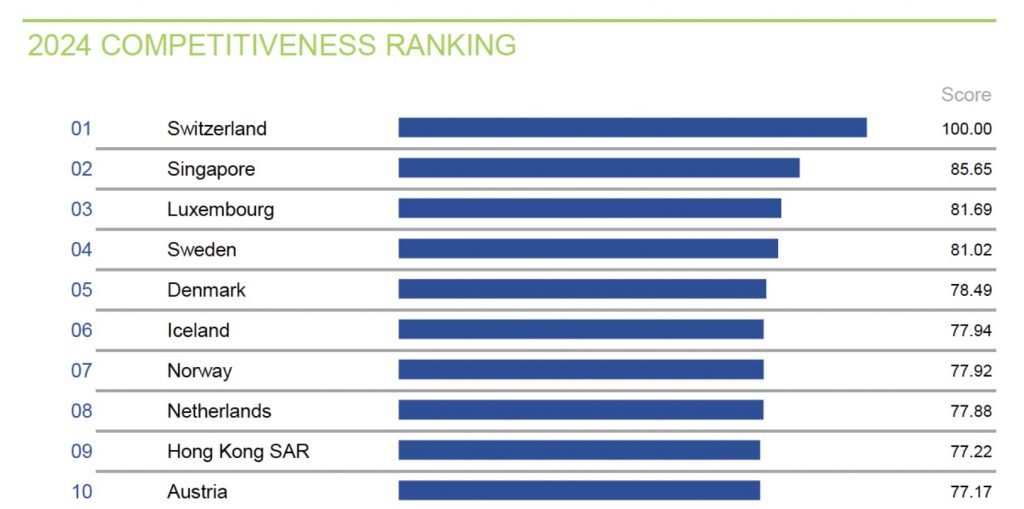SINGAPORE: Over the last decade, Singapore has made a “spectacular ascent” when it comes to world talent rankings.
From eighth place in 2023, the city-state is now in second place, as Switzerland has kept the number one spot for talent competitiveness on a global scale. Switzerland has been in first place since 2020.
Over the past decade, Singapore has climbed from 18th to second, based on World Talent Ranking survey data from the IMD World Competitiveness Center (WCC).

Three factors determine a country’s place in the ranking: investment and development, appeal and readiness. For readiness, Singapore took first place. It ranked fifth for appeal and 22nd in terms of investment and development.
Switzerland ranked first for appeal, investment and development and took second place for readiness.
IMD World Competitiveness Center also gave Switzerland a perfect score of 100. As the runner-up, Singapore scored 85.65. In third to fifth places are Luxembourg (81.69), Sweden (81.02), and Denmark (78.49).
The report noted that having come from low ratings in 2023, Denmark, Norway, and Sweden have bounced back, showing how robust the talent pipelines of these countries are.
This year’s world talent ranking report is titled “The socio-economic implications of AI in the workplace.” Importantly, it shows how inequality has increased for higher-income economies due to the early adoption of AI beginning to replace the workforce.
The economies where senior executives believe AI to be most present in the workplace through how it’s been replacing workers are also where discrimination is on the rise.
“Such economies were identified to be higher-income ones (Japan, Thailand, Singapore, the UK, and Canada) and therefore more likely to experience significant disruptions early on (i.e., during the AI adoption phase) and reap AI’s benefits in the long term,” the report says.
However, higher levels of discrimination can strike a blow to the attractiveness of highly skilled staff from overseas, affecting talent attraction and talent retention.
José Caballero, WCC Senior Economist, said, “Discriminatory practices – whether based on race, gender, age, disability, or sexual orientation – are not going to help attract and retain talent. Beyond that, attracting and retaining highly skilled talent fosters innovation and maintains an economy’s competitive edge.”
Readiness: Singapore’s secret to competitiveness
Singapore’s stellar rise on the World Talent Rankings list has been driven by its strong performance in Readiness, particularly in its talent pool.
The report shows that Singapore ranks first in the world when it comes to skilled labour, finance skills, and competent senior managers and second in the world in terms of international experience of senior managers, primary and secondary education, university education, and educational assessment.
Interestingly, the city-state ranked 63rd (out of 67) in terms of the cost-of-living index. /TISG
Read also: SG ranks 2nd in Global Talent Competitiveness Index for 3rd consecutive year

